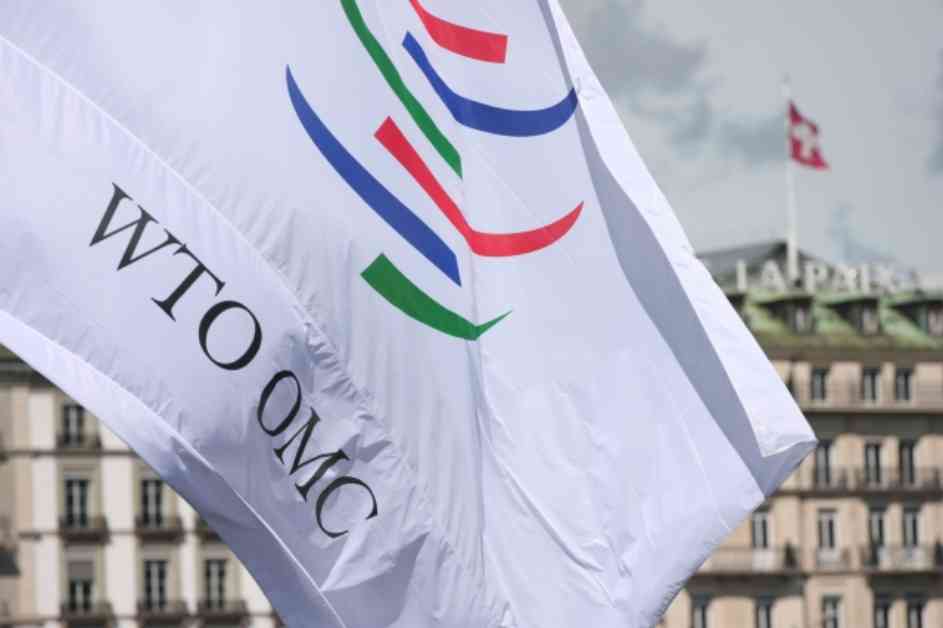During the recent inauguration ceremony on May 20, President Lai made an announcement that Taiwan has officially applied to join the Comprehensive and Progressive Agreement for Trans-Pacific Partnership (CPTPP). This move is part of Taiwan’s strategy to actively engage in regional economic integration and expand opportunities for Taiwanese businesses on a global scale. President Lai outlined a three-part approach to drive Taiwan’s development, with a focus on assisting local businesses in accessing new markets and enhancing their global presence. This initiative aligns with the objectives of the New Southbound Policy (NSP) introduced by former President Tsai.
The World Trade Organization (WTO) plays a crucial role in Taiwan’s bid to join the CPTPP. Established in 1995, the WTO is responsible for overseeing global trade regulations and enforcing trade agreements. Taiwan became a WTO member in 2002 and has actively participated in negotiations to reduce trade barriers, establish rules, and enhance trade knowledge. Taiwan’s proactive engagement in the WTO has led to the removal of trade obstacles and the strengthening of economic ties with other member countries, showcasing its commitment to international trade.
The CPTPP is a regional free trade agreement involving 12 countries, including Japan, and accounts for 15% of the global GDP. Taiwan’s trade value represents 20% of the CPTPP, highlighting its significance in the agreement. While China has also submitted an application for membership in 2021, Taiwan’s bid is still pending. To join the CPTPP, countries must adhere to various requirements such as reducing tariffs, opening up services and investment markets, and upholding competition and intellectual property rights. Taiwan’s inclusion in the CPTPP is crucial for its economic growth and global trade prospects.
Taiwan has been actively involved in the WTO, making strategic amendments to its trade policies and regulations to align with international standards. The Taiwanese government conducted a comprehensive review of its trade policies and revised 11 laws to comply with the commitments of the CPTPP, including intellectual property rights and environmental regulations. Taiwan’s efforts to conform to international trade standards demonstrate its readiness to join the CPTPP and engage in global trade initiatives.
Taiwan has established strong partnerships and bilateral investments with key WTO members such as Japan, Canada, and the United Kingdom. These alliances have facilitated diverse trade and economic activities, contributing to mutual benefits and economic growth. Japan and Taiwan share a close relationship through bilateral cooperation and trade agreements, while Canada and Taiwan have strengthened their ties through foreign investment promotion arrangements. The United Kingdom, despite lacking official diplomatic connections with Taiwan, maintains a robust informal association focused on trade, education, and culture, which could support Taiwan’s accession to the CPTPP.
Despite facing challenges from China’s opposition to its participation in the CPTPP, Taiwan remains committed to meeting international trade standards and seeking support from like-minded countries. Taiwan’s engagement with influential CPTPP members such as Japan and Canada, along with its interest in deepening economic collaboration with the UK, reflects its determination to become a member of the CPTPP. Taiwan’s proactive approach to international trade and its efforts to align with global trade regulations position it as a valuable partner in the CPTPP and the WTO.
In conclusion, Taiwan’s application to join the CPTPP underscores its commitment to regional economic integration and global trade cooperation. By leveraging its partnerships with key WTO members and aligning with international trade standards, Taiwan is poised to enhance its economic prospects and contribute to the growth of the CPTPP. Through strategic engagement with like-minded countries and a steadfast commitment to international trade regulations, Taiwan is well-positioned to navigate the challenges of joining the CPTPP and contribute to the advancement of global trade initiatives.












